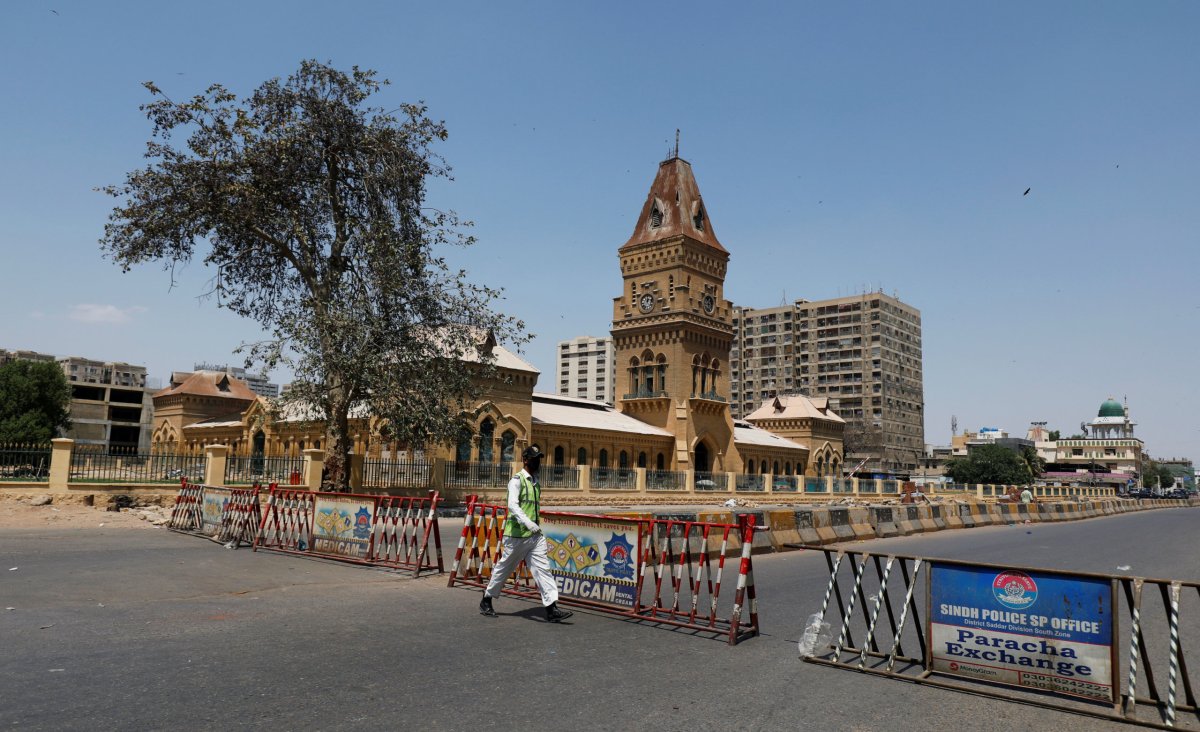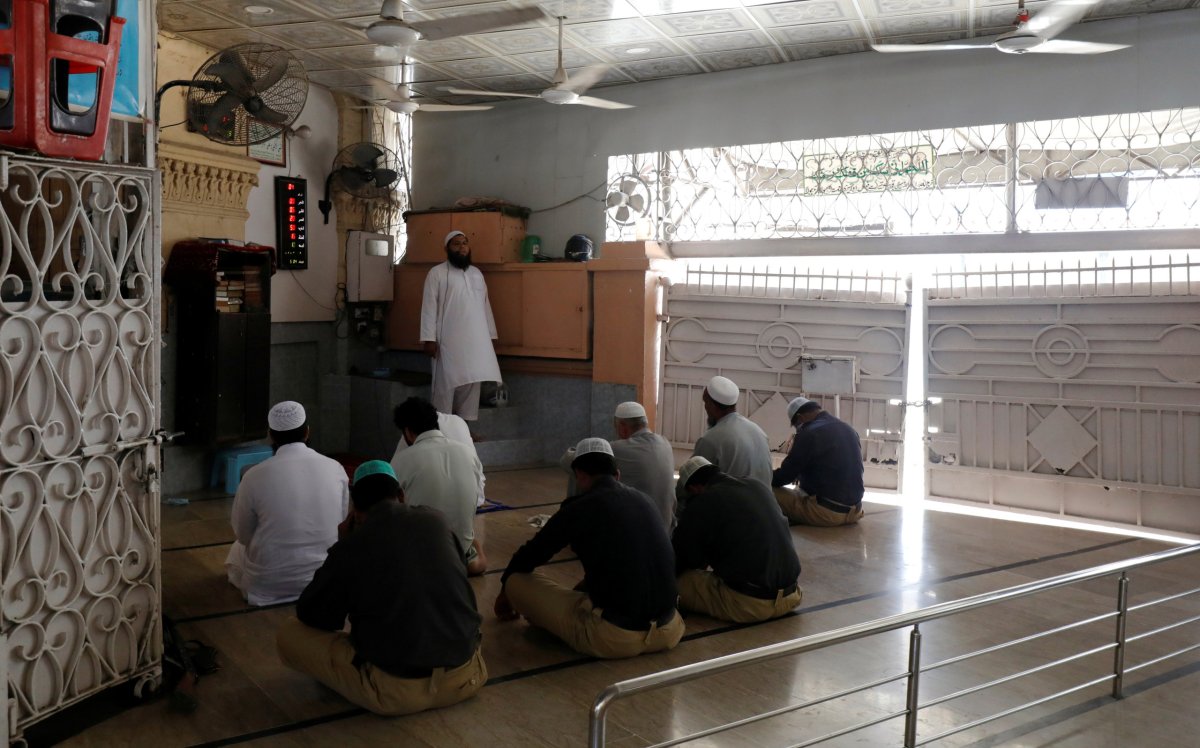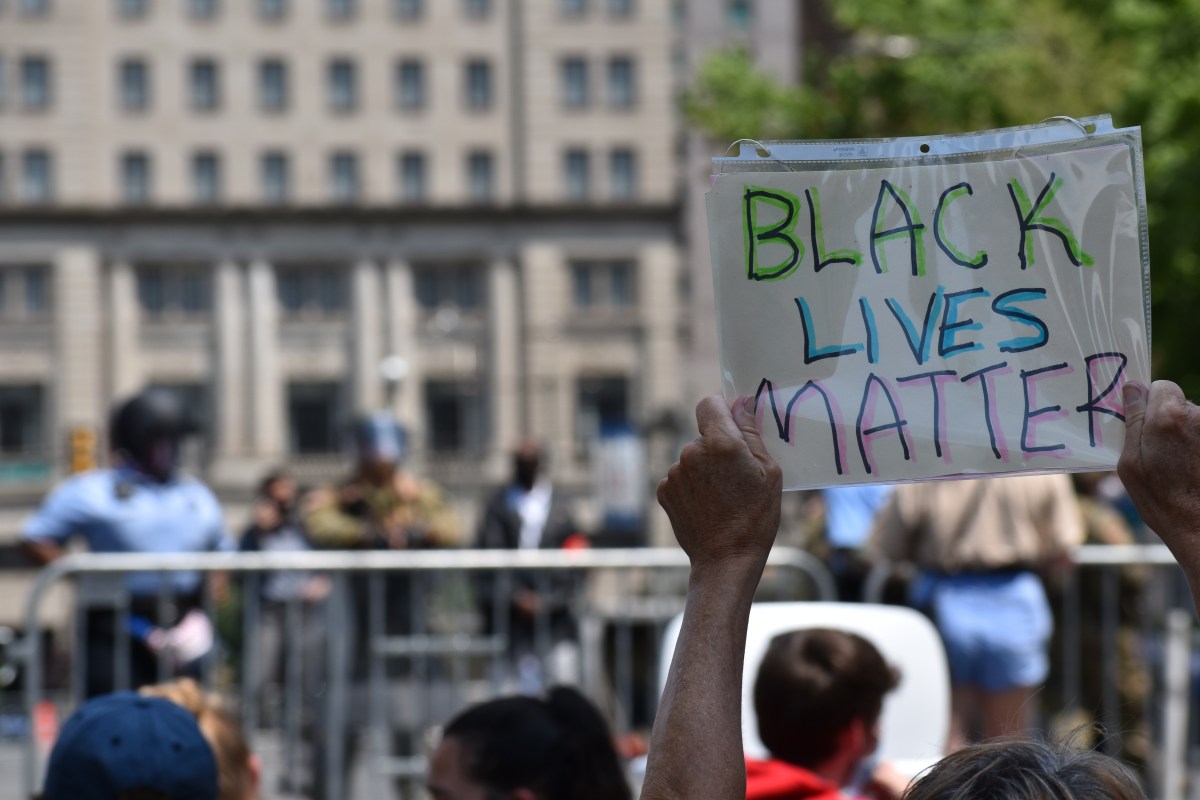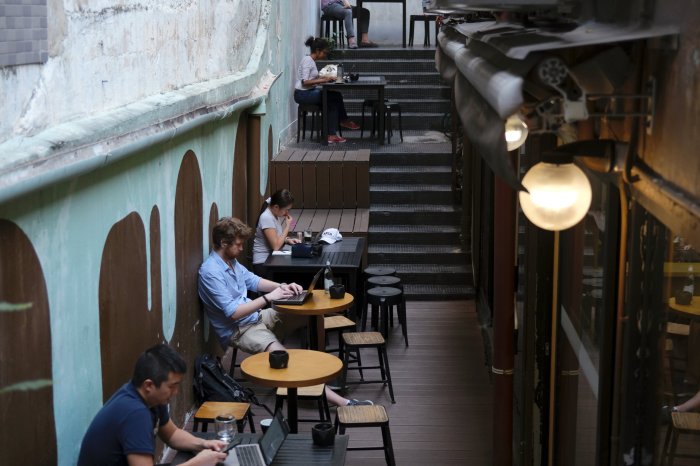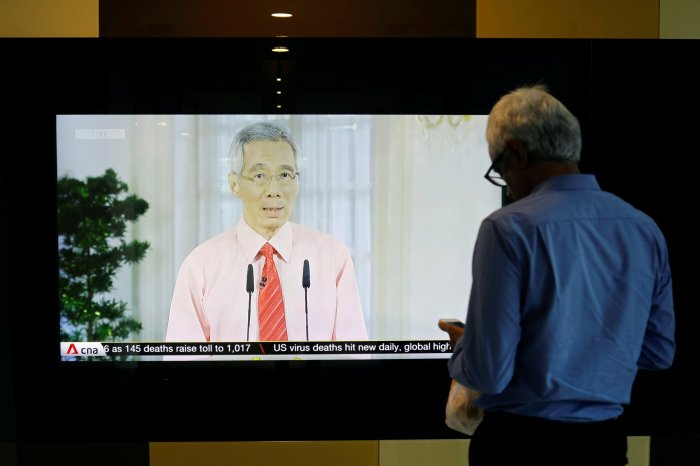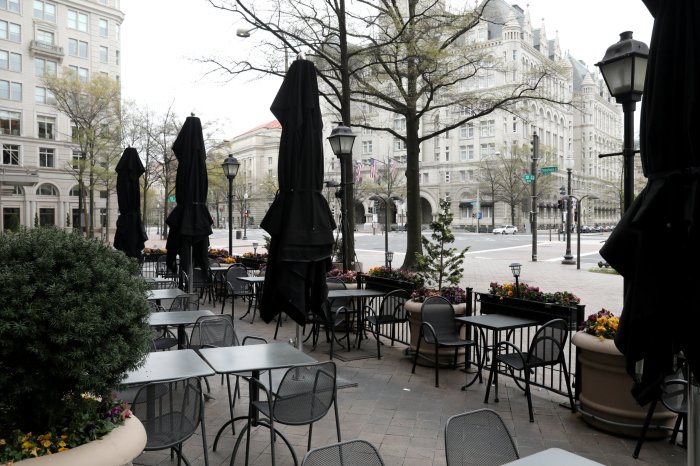KARACHI/DHAKA (Reuters) – Pakistani Muslims at a Karachi mosque clashed with baton-wielding police trying to enforce new curbs on gatherings to prevent Friday prayers and contain coronavirus infections, officials said.
TV footage showed dozens of people chasing two police vehicles and pelting them with stones as an officer fired in the air to disperse the crowd.
Health experts have warned an epidemic in South Asia, home to a fifth of the world’s population, could easily overwhelm already weak public health systems in the region.
But Muslim-majority Pakistan and Bangladesh, and India, home to the world’s largest Muslim minority, have struggled to persuade conservative religious groups to maintain social distancing.
After failing to persuade worshippers to pray at home last week, the government in Pakistan’s southern province of Sindh, home to the financial hub of Karachi, enforced a lockdown for three hours beginning at noon on Friday, officials said.
“In the greater interest of saving lives, a decision to ban the prayer congregations at mosques has been taken,” said Syed Nasir Hussain Shah, Sindh’s minister for local bodies and information.
Pakistan has so far reported 2,458 coronavirus infections, fuelled by a jump in cases related to members of the Tablighi Jamaat, an orthodox Muslim proselytising group.
In Bangladesh, some people attended prayers at mosques on Friday, despite appeals from the government for people to stay at home.
Bangladesh’s top religious body, the Islamic Foundation, said elderly people and those with fever or cough should pray at home.
Bangladesh, home to 160 million people and one of the world’s most densely populated countries, has had 61 cases, including six deaths.
India is under a three-week lockdown.
“We’re not alone,” Prime Minister Narendra Modi said in a video message. “All 1.3 billion of us are in it together.”
The shutdown, which ends on April 14, has helped stem a big outbreak for now, but it has brought India’s economy to a shuddering halt and left millions without work.
Many are struggling for food and water and fleeing cities for their villages in the hinterland, triggering criticism that the government rushed through the shutdown without adequate planning, hurting the poor the hardest.
Modi called on Indians to mark the fight against coronavirus with a show of lamps, candles and flashlights on Sunday night.
India has had 2,547 confirmed infections, 62 of whom have died, low figures by comparison with the United States, China, and Italy. Some however contend that limited testing in India may be masking the extent of infections.
The World Bank said on Thursday it had approved an initial $1.9 billion in emergency funds for coronavirus response operations in 25 developing countries, with more than half the aid earmarked for India.
“The poorest and most vulnerable countries will likely be hit the hardest,” World Bank Group President David Malpas said in a statement.
Late on Friday, Sri Lanka’s central bank cut its benchmark interest rates by a further 25 basis points, its second cut in three weeks, as it scrambled to support the economy.
Following is data on the spread of the coronavirus in South Asia, according to government figures:
* India has registered 2,547 cases, including 62 deaths.
* Pakistan has registered 2,458 cases, including 35 deaths.
* Sri Lanka has registered 152 cases, including 4 deaths.
* Afghanistan has registered 273 cases, including 6 deaths.
* Bangladesh has registered 61 cases, including six deaths.
* Maldives has registered 31 cases and no deaths.
* Nepal has registered six cases and no deaths.
* Bhutan has registered five cases and no deaths.
(Additional reporting by Nivedita Bhattacharjee, Chandini Monappa in Bengaluru, Swati Bhat in Mumbai,; Writing by Gibran Peshimam and Sanjeev Miglani; Editing by Euan Rocha, Raju Gopalakrishnan and Nick Macfie)

